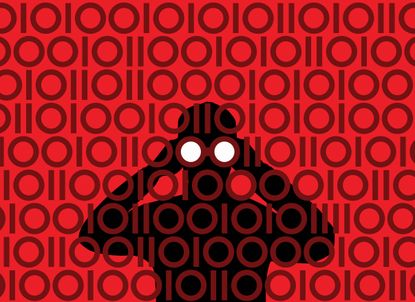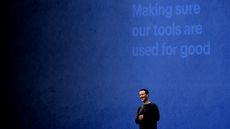How journalism got exploited by hackers
When will the media wise up to the dangers of reporting on leaked emails?


Hackers are inserting themselves into the news production business with increasing regularity, and the effect should unsettle journalists and the public alike. That's because those who steal information are in a very good position to make the media work for them, even as they conceal their own aims.
The most seductive part of recent data dumps, like the one that released emails from former Secretary of State Colin Powell or the Democratic National Committee, is that they do help journalists advance stories. American foreign policy journalists and experts did get an unprecedented look at the workings of the State Department during 2010 WikiLeaks dump. If you repeat mantras to yourself about how "information wants to be free," or that "transparency is always good," it may seem that hackers are doing something like public service.
For instance, last week's leak of Powell's emails contained a number of items that fit into and advanced existing stories. There were his derogatory comments about both presidential candidates. Donald Trump was, for Powell, a "demagogue," and Hillary Clinton was "greedy." Further, the leaks included details in the ongoing story about Clinton's handling of email, namely Powell's desire not to be dragged into the story himself, especially not as her human shield. And perhaps most tantalizing was the anecdote, relayed by a Powell correspondent worried about Clinton's health, that Sen. Sheldon Whitehouse (D-R.I.) told him that Clinton "could barely climb the podium steps" at an event.
Subscribe to The Week
Escape your echo chamber. Get the facts behind the news, plus analysis from multiple perspectives.

Sign up for The Week's Free Newsletters
From our morning news briefing to a weekly Good News Newsletter, get the best of The Week delivered directly to your inbox.
From our morning news briefing to a weekly Good News Newsletter, get the best of The Week delivered directly to your inbox.
But the leak also contained a number of other trivialities about the lives of Colin Powell and his family. For instance, that Powell's son bought a $1,000 toilet and tried to sell it to his father when it proved not so useful in his own home.
The trouble is, hackers have structural advantages over journalists that are dangerous for the news business. The first is that they can uncover more information more quickly. They also have the tools to filter the data they uncover or even manipulate it before release. And merely by compromising the privacy of another person or institution, the hackers can make any of the data they dump newsworthy merely by their act of stealing and revealing it.
The stolen data that hackers offer to journalists is impossible for journalists to resist. Investigative journalism is time consuming and expensive. Keyword searching for scandalous email addresses in an Ashley Madison hack or for names in a packet of stolen emails only takes a few minutes or hours. In effect, hackers can deputize the media to analyze and publicize data that the hackers themselves think is newsworthy or useful.
Journalists have always been vulnerable to manipulation by their sources. See the way so many journalists were embarrassed by the intelligence leaks they got from former Vice President Dick Cheney's office during the run-up to the Iraq War. Media institutions also have to be on guard against their biases. Being human, they have a built-in bias toward stories that seem to confirm the world is what they believe it to be.
But journalists and media institutions are especially vulnerable to manipulation in the form of leaked documents, like emails or cables. A human source may give off signs of lying, or his personal and financial interests may be detectable to the journalists and detract from the credibility of the source's claims. A stolen document, however, seems to certify itself. Especially if it is just one among hundreds or thousands.
The journalists who wrote up stories about Powell's email know very little about the data they are perusing, or the motives driving those who leaked it. It could be a little digital activist who believes in transparency and made public everything they stole. Or it could be a person or foreign government who wanted to shape a political outcome. We know that a story about Clinton's poor health is in this dump. We don't know if emails about Clinton's vigor were selectively edited out of it before release. In fact, it is perfectly possible for a hacker to use the information in the data they did steal as a model for mocking up false information they want to circulate in their leak. All we have is some light speculation that a group of Russian hackers may be responsible.
The effect is that by digitally hacking the data of corporations, celebrities, or politicians, the leakers perform a "social-hack" of journalism itself. Public relations agencies are paid top dollar in their sometimes humiliating quest to get news outlets to write stories about their clients. But a group of successful hackers can change the front page of all the major news websites in the world within a few hours just by leaking enough of the right sort of data. Journalists barely have time to check what they are reporting, and victims of the leak may have a difficult time authenticating the contents of it, too.
There were times when paparazzi photographers were blamed for creating stories through their scummy tactics or even endangering and killing their subjects. Some goaded celebrities outside of Hollywood hangouts for a laugh on a gossip site, others chased Princess Diana through a tunnel on motorcycles. The introspection lasted a few weeks, some laws were passed, and then the market demanded the exclusive photos and everyone went back to business.
What has to happen for the media to rethink its cooperation — or capture — by hackers?
Create an account with the same email registered to your subscription to unlock access.
Sign up for Today's Best Articles in your inbox
A free daily email with the biggest news stories of the day – and the best features from TheWeek.com
Michael Brendan Dougherty is senior correspondent at TheWeek.com. He is the founder and editor of The Slurve, a newsletter about baseball. His work has appeared in The New York Times Magazine, ESPN Magazine, Slate and The American Conservative.
-
 'Elevating Earth Day into a national holiday is not radical — it's practical'
'Elevating Earth Day into a national holiday is not radical — it's practical'Instant Opinion Opinion, comment and editorials of the day
By Harold Maass, The Week US Published
-
 UAW scores historic win in South at VW plant
UAW scores historic win in South at VW plantSpeed Read Volkswagen workers in Tennessee have voted to join the United Auto Workers union
By Peter Weber, The Week US Published
-
 Today's political cartoons - April 22, 2024
Today's political cartoons - April 22, 2024Cartoons Monday's cartoons - dystopian laughs, WNBA salaries, and more
By The Week US Published
-
 How do you solve a problem like Facebook?
How do you solve a problem like Facebook?The Explainer The social media giant is under intense scrutiny. But can it be reined in?
By Peter Weber Published
-
 Microsoft's big bid for Gen Z
Microsoft's big bid for Gen ZThe Explainer Why the software giant wants to buy TikTok
By Amrita Khalid Published
-
 Apple is about to start making laptops a lot more like phones
Apple is about to start making laptops a lot more like phonesThe Explainer A whole new era in the world of Mac
By Navneet Alang Published
-
Why are calendar apps so awful?
The Explainer Honestly it's a wonder we manage to schedule anything at all
By Navneet Alang Published
-
 Tesla's stock price has skyrocketed. Is there a catch?
Tesla's stock price has skyrocketed. Is there a catch?The Explainer The oddball story behind the electric car company's rapid turnaround
By Jeff Spross Published
-
 How robocalls became America's most prevalent crime
How robocalls became America's most prevalent crimeThe Explainer Today, half of all phone calls are automated scams. Here's everything you need to know.
By The Week Staff Published
-
 Google's uncertain future
Google's uncertain futureThe Explainer As Larry Page and Sergey Brin officially step down, the company is at a crossroads
By Navneet Alang Published
-
 Can Apple make VR mainstream?
Can Apple make VR mainstream?The Explainer What to think of the company's foray into augmented reality
By Navneet Alang Published